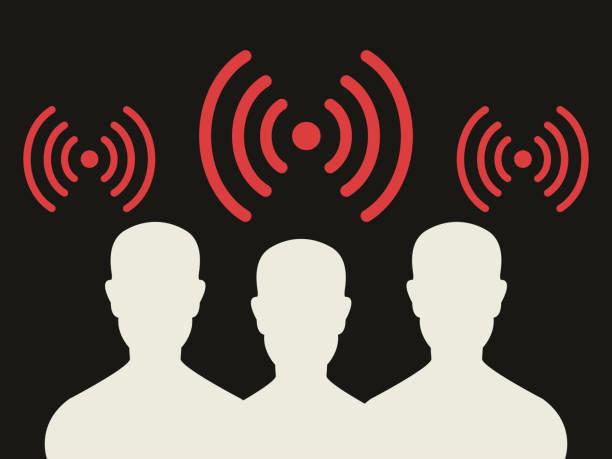
19-Dec-2022
Wireless Radiation Impacts the Brain
The effects of wireless radiation on the brain are a hot topic of debate. Some say that there is no evidence to suggest that wireless radiation is harmful, while others claim that it’s the leading cause of cancer. So, who’s right? The answer, unfortunately, is complicated. The truth is, we simply don’t know enough about the long-term effects of wireless radiation to make a definitive statement either way. What we do know is that wireless radiation can have an impact on the brain. In this blog post, we will explore the potential risks and impacts of wireless radiation on the brain.
What is wireless radiation?
Wireless radiation, also known as microwave radiation, is a type of electromagnetic radiation emitted by wireless devices such as cell phones, computers, and routers. This type of radiation has been shown to have negative effects on human health, including brain damage. For eg: Usage of 4g and 5g networks.
How does wireless radiation impact the brain?
- Wireless radiation has been shown to have a variety of adverse effects on the brain. These include neurological disorders, cognitive impairment, and brain cancer.
- Wireless radiation has been shown to cause neurological disorders such as Alzheimer’s disease, Parkinson’s disease, and multiple sclerosis. It has also been linked to cognitive impairment, including memory loss, attention deficit disorder, and learning difficulties. Furthermore, wireless radiation has been classified as a “possible human carcinogen” by the World Health Organization.
Symptoms of wireless radiation exposure
There is a growing body of evidence that suggests exposure to wireless radiation can have negative impacts on brain health. Symptoms of wireless radiation exposure can include:
* headaches
* fatigue
* sleep disturbance
* anxiety
* depression
* memory problems
* attention problems
If you are experiencing any of these symptoms, it is important to consult with a medical professional to rule out other possible causes. However, if you are also exposed to significant levels of wireless radiation, it may be worth considering reducing your exposure as a potential means of alleviating your symptoms.
How to protect yourself from wireless radiation
There are a few things you can do to protect yourself from wireless radiation. One is to limit your exposure by using wired headphones or earbuds instead of wireless ones, and keeping your phone away from your body as much as possible. If you must use a wireless device, make sure it’s turned off when you’re not using it. You can also shield yourself from radiation by wearing clothing that covers your body or using a device that emits low-level electromagnetic field (EMF) protection.
Conclusion
We hope that this article has given you some food for thought on the topic of wireless radiation and its potential impacts on the brain. We know that more research needs to be done in this area, but the evidence we do have suggests that there may be cause for concern. If you are worried about your exposure to wireless radiation, there are steps you can take to minimize your risk.

SEO and Content Writer
I am Drishan vig. I used to write blogs, articles, and stories in a way that entices the audience. I assure you that consistency, style, and tone must be met while writing the content. Working with the clients like bfc, varthana, ITC hotels, indusind, mumpa, mollydolly etc. has made me realized that writing content is not enough but doing seo is the first thing for it.
Comments
Solutions
Join Our Newsletter
Subscribe to our newsletter to receive emails about new views posts, releases and updates.
Copyright 2010 - 2026 MindStick Software Pvt. Ltd. All Rights Reserved Privacy Policy | Terms & Conditions | Cookie Policy